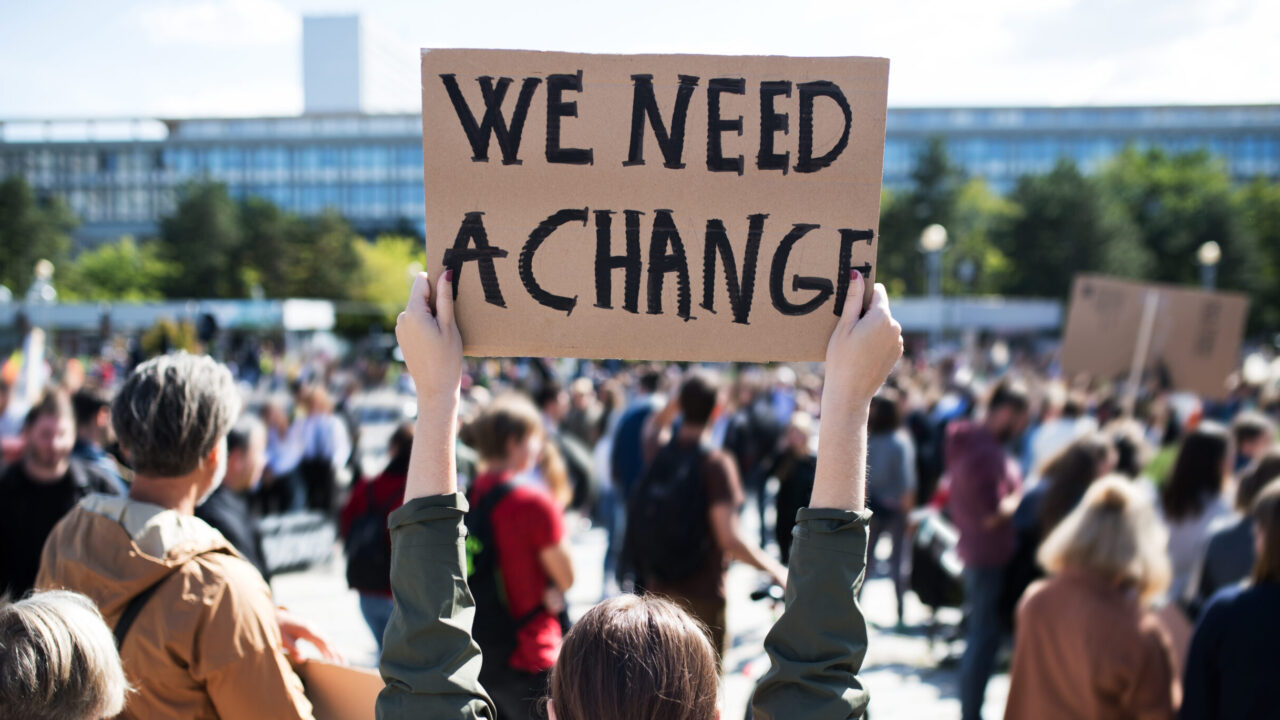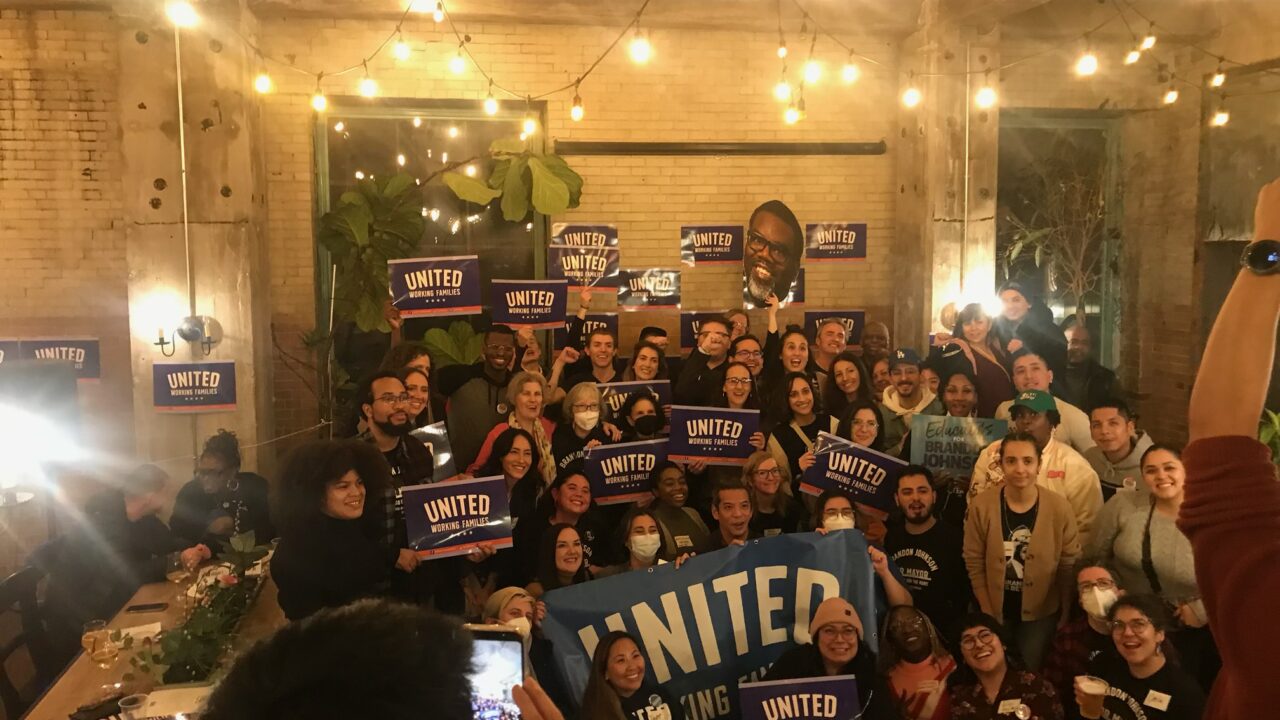Articles
-

Our Prescription for Winning: Give Organizers What They Need to Thrive
At this moment, our sector is immersed in a critical debate over what it takes to win. Yet primarily scrutinizing current organizers in a rush toward correction risks getting the diagnosis wrong. The organizing sector is immersed in a critical...
-

We Won’t Always Have a Mamdani: Funders Must Invest In Civic Engagement To Sustain Voter Turnout Among Marginalized Communities.
To build consistent voter turnout beyond star candidates, funders must shift from late-cycle spam to early, year-round investments in community-based civic education, trusted messengers, and leadership development. It seems counterintuitive to focus on voter turnout in New York City, given...
-

The Coming Storm In New York
5 Lessons Learned for Mamdani From 40 Years of Building Independent Politics in Chicago. In 1983, Harold Washington was the first Black man to be elected mayor of Chicago. He was elected by a grassroots movement of community organizations, progressive...
-

Updated Insights for More Effective Coalitions
The Climate Advocacy Lab’s Blueprint for Multiracial, Cross-Class Climate Movement is an updated report and workbook providing tools to build healthier, more effective climate coalitions through strategic culture, governance, and conflict management. Back in 2022, we noticed that there were...
-

For the Record: How Social Media Users are Highlighting Media Bias and Reframing the Narrative
Social media users are exposing how major news headlines manipulate language to sanitize violence in Gaza—proving that a simple annotation can be a means of resistance. Language Is Never Neutral The best way to communicate something is usually the simplest...
-

Building Community Power to Take Back Our Data
To fight tech giants and law enforcement, organizers must adopt “data defense” as a core strategy—learning to collectively refuse data extraction, expose biased narratives, and reclaim personal and community information as a new frontier of political power. Unprecedented abuses of...
-

Inspiring Radical Optimism Through Solidarity Economy Storytelling: Narrative Power & The Fight Against the Mainstream
While mainstream media pushes narratives of scarcity and inevitability, frontline communities practicing “Solidarity Economics” demonstrate that “resist and build” is a proven path. It forges collective power and creates a radical, livable future. One of the most powerful roles of...
-

Moral Messaging When It’s Raining Cats and Dogs
When a racist lie transformed Springfield, Ohio into a national flashpoint, this story reveals how a local network fought back not with outrage, but by asking a radical, actionable question: What does it mean to ‘Love Your Neighbor’ when the...
-

Winning the Reality War against Fascism and Ecological Collapse: Lessons from the Right’s Narrative Strategy
If the Right has the “Great Replacement,” what’s our equivalent story to win the reality war? This article argues the Left must master the art of narrative warfare to counter MAGA’s assault on reality. From the Overton Window to the...
-

On the Importance of Building Narrative Infrastructure
This article is a field manual for building the four essential narrative infrastructures needed to dismantle authoritarianism, arguing that movements must construct them urgently to survive and wield transformative power. Crises are paradoxical. They are urgent and immediate and demand...
-

Shades of Discourse: Bridging Culture, Scholarship, and Organizing
In a digital age designed to breed distrust and flatten dialogue, this article reveals how an in-person Black creative and activist salon is pioneering the very kind of trusting, imaginative community our movements need to survive and win Back in...
-

Power, Not Panic: Why Organizers Must Engage with AI to Build the Future We Deserve
Arguing that disengagement from AI is not a strategy but a surrender, this piece challenges progressive organizers and funders to reclaim the technology, using frameworks like Afrofuturism to build people power instead of ceding the future to billionaires and autocrats....
-

Hasbara v Irreplaceable
As Israel’s genocide in Gaza rages for two years, this is how propaganda warps U.S. media and our conscience, and how we must fight back. Two years of bearing witness to Palestinians’ genocide raises the moral question that lies at...
-

Rebuilding Our Narrative Home: A Movement’s Journey Through the Immigration Divide
This article argues that to counter the well-funded, agile anti-immigrant narrative, the immigrant justice movement must fundamentally overhaul its own fractured infrastructure, abandon siloed “messaging” for a cohesive “narrative surround-sound,” and build the collective power to shift national consciousness. This...
-

The Summer Everybody Wanted to be Puerto Rican: Cultural Strategy for Decolonial Narrative Power
Despite colonial policies pushing Puerto Ricans out, this article chronicles how organizers are fighting back by fusing mutual aid, political campaigns, and cultural joy into a powerful, people-led narrative: that privatization has failed and the archipelago’s future belongs to its...
-

What We’ve Learned from State Organizers Building Narrative Power
By showcasing victories in Tennessee and Florida, this piece offers a concrete blueprint for building narrative power, showing that the antidote to fascist distraction is seizing the moral high ground and making narrative “everybody’s job” within a coalition. In 2018,...
-

Death of the Messenger
As Israel kills the storytellers of Gaza, this article is a powerful call for global witnesses to pick up the pen, reclaim narrative power, and become the collective keepers of a truth that empires are trying to erase. More than...
-

Invitation to 21st-century Orators, Griots, Futurists
In the face of fascism’s “death cult,” radical communicators must forge a powerful “narrative solidarity,” using shared grief and belonging to build bridges and win. Ase! In West African traditions, ase means “and so it is.” It is “the power...
-

Looking Forward: Narrative Power Today for a Radical Tomorrow
To stop losing the story to authoritarians, the Left must stop treating comms as an afterthought and start building a shared narrative infrastructure—here’s the radical strategy to do it. Right now, we have an opportunity to define a compelling story...
-

Philanthropy’s Mandate to Divest from Genocide in Palestine and Beyond
Philanthropy’s urgent mandate to divest from genocide, occupation, and systemic oppression is powerfully underscored by the launch of the Funding Freedom toolkit, which calls for funders to fulfill their moral responsibilities. Philanthropy wields enormous power—rooted in vast accumulations of wealth...